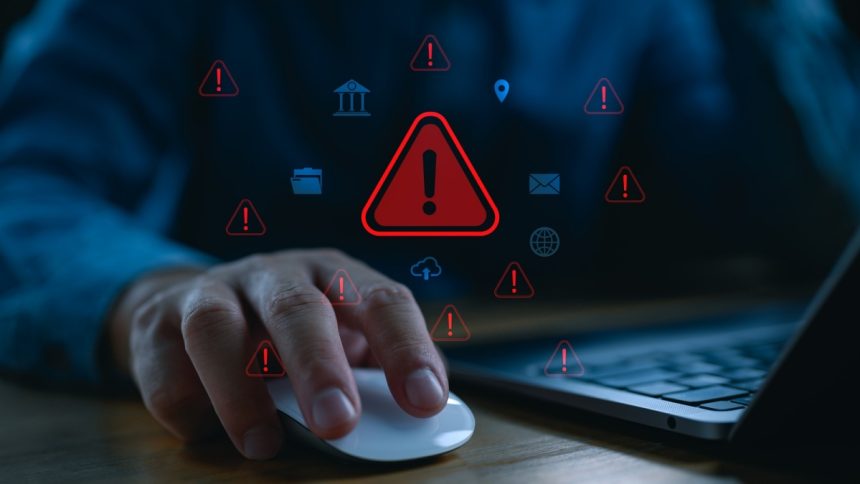In today’s digital landscape, cyberattacks are not a question of if but when. Regardless of size, businesses are increasingly becoming targets for hackers who exploit weak points in systems to steal data, disrupt operations, and demand ransoms. These breaches’ financial and reputational costs can be catastrophic, especially for small and medium-sized enterprises.
Businesses must proactively identify and fix vulnerabilities rather than wait to be caught off guard. One of the most effective ways to do this is through penetration testing. This method simulates real-world cyberattacks to uncover weak points in your systems before malicious actors can exploit them. But how does it work, and why is it essential? Let’s dive deeper.
What Is Penetration Testing and Why Does It Matter?
Penetration testing is a controlled simulation of a cyberattack designed to identify security weaknesses in a business’s systems, networks, or applications. It mimics real hackers’ tactics and techniques to expose gaps that might go unnoticed.
Why is this important? Cybercriminals constantly evolve their strategies. Even the most robust-looking systems may harbor hidden vulnerabilities. Pen testing serves as a wake-up call, revealing these flaws and providing actionable insights to fix them before they become a liability.
This process is not just about technology. It also assesses how well your team responds to potential threats, ensuring that your business is equipped to handle an actual attack.
Penetration testing matters because it bridges the gap between perceived security and actual security.
The Cost of Complacency: Consequences of Ignoring Penetration Testing
Failing to invest in proactive security measures like penetration testing can have dire consequences. Cyberattacks are more than just an inconvenience—they can cripple a business.
- Financial losses: Data breaches can result in fines, legal fees, and lost revenue. Customers may take their business elsewhere if they lose trust in your ability to protect their information.
- Reputational damage: Once your business’s name is associated with a breach, rebuilding trust is an uphill battle. Negative headlines can linger, impacting your brand’s image for years.
- Legal liabilities: Many industries are bound by strict regulations requiring the protection of sensitive information. A breach may lead to penalties for non-compliance with data privacy laws.
Consider businesses that faced multimillion-dollar losses from ransomware attacks—many of these incidents could have been prevented with thorough penetration testing.
Preparing for Penetration Testing: Steps to Get Started
Before jumping into penetration testing, it’s important to set clear objectives. What do you hope to uncover? Are you testing internal systems, external networks, or both? Defining the scope ensures the testing process is focused and effective.
Preparation also involves gathering key stakeholders. Your IT team, third-party testers, and cybersecurity experts should collaborate to establish protocols and determine what’s off-limits during the test. This ensures the process is thorough without disrupting critical operations.
Finally, ensure your team understands the importance of the test. It’s not about placing blame—it’s about strengthening your defenses.
The Right Tools for Effective Penetration Testing
To make the most of penetration testing, your tools must be practical. While specific tools vary depending on the type of testing, they should mimic real-world attack scenarios to provide a realistic picture of your vulnerabilities. Comprehensive coverage is also essential, whether you’re conducting network assessments, web app pen testing, or evaluating endpoint security. The tools must adapt to the complexities of your environment and provide detailed reporting. Identifying weaknesses alone is insufficient—actionable recommendations are critical for addressing them effectively.
Selecting the right tools ensures that your penetration testing efforts yield meaningful results. However, remember that tools alone are not enough—they must be used by skilled professionals who understand your business needs.
Beyond Testing: Leveraging Results to Strengthen Cybersecurity
A penetration test is only as good as the actions you take afterward. Once vulnerabilities are identified, prioritize fixing them immediately. This may involve patching software, updating configurations, or revising cybersecurity policies.
The insights gained from penetration testing should also inform your broader security strategy. Regular testing ensures that your business remains one step ahead as new threats emerge. Cybersecurity is not a one-time effort—it’s an ongoing process that evolves with the threat landscape.
Common Misconceptions About Penetration Testing
Despite its importance, penetration testing is often misunderstood. Let’s debunk a few common myths:
- “Pen testing is only for large enterprises.” Small and medium businesses are often prime targets because they lack robust defenses. Pen testing is valuable for organizations of all sizes.
- “If no vulnerabilities are found, my system is secure.” Security is dynamic. Just because a system appears secure today doesn’t mean it will remain so tomorrow. Regular testing is crucial.
- “Pen testing is a one-time process.” Cyber threats evolve rapidly. Penetration testing should be conducted regularly to address new risks and adapt to environmental changes.
Understanding these misconceptions ensures businesses approach penetration testing with the right mindset.
Conclusion: Is Your Business Prepared?
The question isn’t whether your business will face a cyberattack—it’s whether you’ll be prepared when it happens. Penetration testing offers a proactive solution, uncovering vulnerabilities and equipping your team to respond effectively.
Don’t let complacency be your downfall. Invest in penetration testing today and take the first step toward safeguarding your business from catastrophic cyberattacks. Are you ready to protect what matters most?
Lynn Martelli is an editor at Readability. She received her MFA in Creative Writing from Antioch University and has worked as an editor for over 10 years. Lynn has edited a wide variety of books, including fiction, non-fiction, memoirs, and more. In her free time, Lynn enjoys reading, writing, and spending time with her family and friends.















